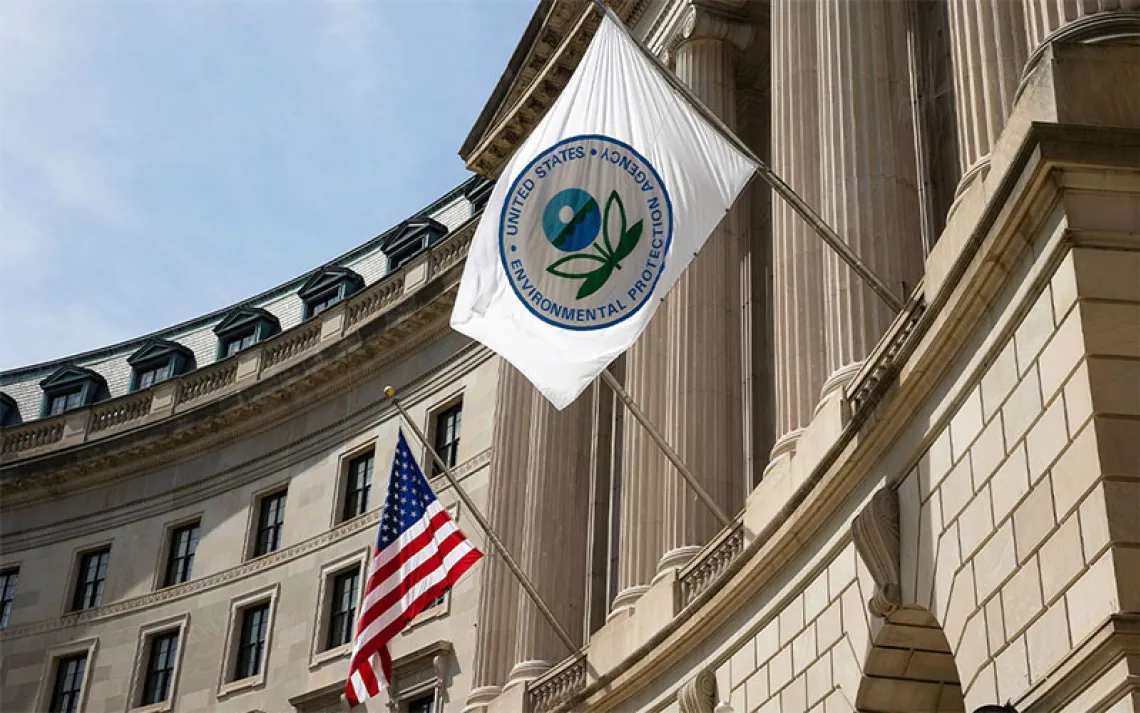Got Those Climate Change Blues
A meteorologist and journalist struggles with climate change depression

Illustration by Alice Yu Deng
I lose sleep over climate change almost every single night. I can't remember how long this has been happening, but it's been quite a while, and it's only getting worse. I confess: I need help.
A few years ago, I shared my climate change depression on Twitter, and the response was overwhelming. One of my tweets rose up the alt-truth ranks all the way to Fox News, where one host called me a "kook" for publicly expressing my feelings about the environment. Other responses were more empathic. Hundreds of people wrote to me admitting their own personal struggles under the weight of an unraveling world. This was a consolation of sorts. I realized that I am not alone in experiencing a kind of environmental dread.
Like many people who care about the fate of the planet, I've spent most of the past year alternating between soul-crushing despair and headstrong hope. My personal situation, however, is a bit unusual in that I get paid to be a climate-science communicator.
I'm a meteorologist by training and a journalist by profession. For the past 12 years, I've focused every working day on understanding, explaining, and trying to alleviate the effects of climate change. Yet global carbon emissions are more than 20 percent higher now than when I started work as a climate journalist. It's difficult not to internalize some of this as a personal failure. "I should be telling that story better," I'll tell myself, as the amount of CO2 in the atmosphere continues to climb. The regret is catching up to me.
For now at least, the good days are enough to keep me going. But there are also days when I'm paralyzed. Case in point: This very essay. It sat open in a window on my computer for nearly 11 months, begging to be completed. Yet I resisted. Confronting the existential dread that climate change infuses into nearly every aspect of my life just isn't something I want to spend my time doing.
About a year ago, I went to see a counselor for anxiety. He seemed unprepared for my emotional crisis. His simple advice was, "Do what you can." Easier said than done, of course, but the advice helped me to realize something important: We are all in this together.
But for some reason, I still have a hard time talking about these emotional challenges in person. Climate change and mental health are still fairly taboo subjects in polite company (even if these aren't days in which being polite gets one very far). Over the past several months, I've stopped talking about climate change with my parents, my wife, and my sister in order to avoid heated dialogue about what I think is the most important issue in the world. Instead, I've privately sought out personal advice from other scientists and journalists, and often commiserated with strangers. My support network has become those who are going through the same emotional crisis.
I know that cutting out my family is a defensive strategy. I know it can't last forever. In ordinary times, I would welcome any chance to include my loved ones in my life's work. But right now, I feel like I have to restrain myself from opening up about how I really feel to protect whatever seeds of hope I have left. I don't know if it's the right decision, but I know that I need to preserve my own well-being to continue to fight for the planet.
So what are we, the climate anxious, to do? If there's any lesson in my story, I think it's the importance of admitting our personal limitations. Such an admission of human weakness grounds us. It helps us focus. It helps us recharge for the fight ahead and connect with those who share the same vision. It helps me to do what I can.
Find someone—anyone—to talk to. If you're struggling, say so. If you're hopeful, say so. Chances are, there's a community of people out there who can give you the boost you need to keep going in this long struggle to protect Earth and all of its inhabitants.
This article appeared in the March/April 2018 edition with the headline "Climate Change Blues."
 The Magazine of The Sierra Club
The Magazine of The Sierra Club



